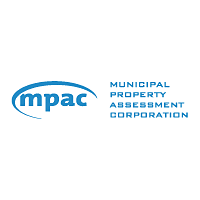 | |
| Formerly | OPAC (Ontario Property Assessment Corporation) |
|---|---|
| Company type | Crown corporation |
| Industry | Real estate accurately assess and classify all properties in Ontario an independent, not-for-profit corporation funded by all Ontario municipalities. |
| Founded | December 31, 1998 |
| Founder | Government of Ontario |
| Headquarters | , Canada |
Number of locations | 35 |
Area served | Ontario |
Key people | Nicole McNeill (President and Chief Administrative Officer) |
| Owner | Government of Ontario |
Number of employees | 1700 [1] |
| Parent | Government of Ontario |
| Website | www.mpac.ca |
The Municipal Property Assessment Corporation (MPAC) administers property assessments and appeals of assessment in the province of Ontario, Canada. [2] [3] [4] MPAC determines the assessed value for all properties across Ontario. This is provided in the form of an Assessment Roll, which is delivered to municipalities throughout the province on the second Tuesday in December. Municipalities then take the assessment roll, and calculate property taxes for each individual property in their jurisdiction.
Contents
- MPAC history
- Pre-1970
- 1970-1997 – Market value assessment introduced
- Post-1997 – Ontario Fair Assessment System
- Controversy
- See also
- References
- External links
The head office is located in Pickering, Ontario. MPAC, formerly known as OPAC (Ontario Property Assessment Corporation), was created on December 31, 1997, as a method to create accurate and equitable assessments across Ontario. MPAC came into existence with the MPAC Act , and it administers the Assessment Act , both part of Ontario provincial legislation. On December 31, 1998, the Government of Ontario transferred responsibility for property assessment from the Ministry of Finance to the Ontario Property Assessment Corporation, an independent body established by the Ontario Property Assessment Corporation Act, 1997. [5]
Prior to the creation of MPAC, municipalities in Ontario had discretion on how they chose to assess properties. This created inequity across the province, as similar properties across the province had separate values.
In 2022, MPAC sent out approximately 6 million property assessment notices, advising properties of their assessment value. The current values are based on a January 1, 2016 valuation date. Due to the COVID-19 pandemic, the Ontario government postponed the 2020 Assessment Update. They indicated that property assessments for the 2022 and 2023 property tax years will continue to be based on the fully phased-on January 1, 2016, current values. In August 2023, the Ontario government announced that it was postponing a provincewide property reassessment as it conducts a new review of the accuracy and fairness of the system. In 2022 alone, MPAC added more than $37.8 billion to municipal rolls across Ontario through its assessments of new construction and renovated properties. Municipalities pay more than $200 million annually for this service.
